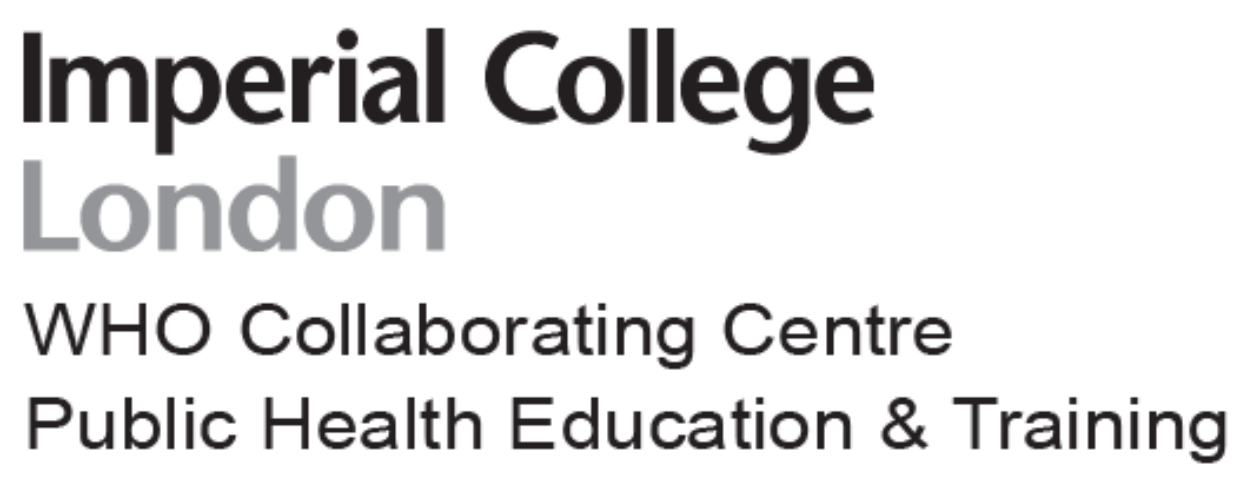Public Health Practice Course
- Home
- Public Health Practice Course
Public Health Practice Course
-
Public health is “the science and art of preventing disease, prolonging life and promoting health through the organised efforts and informed choices of society, organisations, public and private, communities and individuals.”. The highest quality public health practices are population-centred, equitable, proactive, health-promoting, risk-reducing, vigilant, transparent, effective, and efficient (Honorá & Scott, 2010).
Today, public health is facing increasing and complex challenges. In order to overcome these challenges and serve the growing population, public health professionals need to develop new knowledge, skills, and attributes. More importantly, public health professionals should collaborate with other stakeholders across various departments, organisations, and international borders to successfully solve or at least reduce the magnitude of these challenges. Lately, the lesson we have learnt from the COVID-19 pandemic is that public health practice played an important role in our daily life to protect the population and reduce the pressure on the health system. For this reason, we will introduce the participants to the main concept of public health and public health practice in this course.
This is particularly important in using the best available evidence to make an informed decision in supporting intervention or establishing policy. Evidence-based public health practice is very effective in systematically finding health and health care needs to establish a new programme to close those gaps. There are different types of needs among the communities and the individuals, such as, social needs which is based on population perception; epidemiological needs, which refer to a health problem affecting a large number of people (epidemics), behavioural needs, which is related to individual or community lifestyle, and finally other needs which could be environmental needs that related to schools, transportation. Therefore, learners in this course will define and conduct a health needs assessment and evaluation in practical public health by using the public health toolkit.
The public health practice course will cover one of the main topics: principles in public health. Public health principles are equity, fairness and inclusiveness, empowerment, and effectiveness. Participants will be able to apply those principles to public health practice and its impact on population health. In addition, the course will introduce participants to the science and principles of infectious diseases in communities, hosts in chronic infectious disease, how to cut the agent to prevent transmission, and the role and the impact of the vaccine on population health. Furthermore, learners will be familiar and up to date with the fundamentals of public health and confident in discussing health issues when they move into practice.
Imperial College London WHO Collaborating Centre for Public Health Training and Education (ICL-WHO CC) has organised a three-day bespoke intensive training course tailored to develop and build the capacity of a cohort of public health professionals in public health practice.
Course Overview
The Public Health Practice course will enable the participants to reflect on and encourage the behaviours they require to become effective public health professionals, whether academic, practitioner, clinician, manager, or leader. The course covers the origins of public health, health improvement, behaviour change, and health protection. The course is a bespoke programme based on top UK university successful courses in the foundation of public health approach in practice. The aim is to help participants improve their knowledge and skills to become more successful public health professionals. The courses address a range of domains, including:
-
1. Introduction to public health practice
-
2. Evidenced-based research in public health practice
-
3. The main elements for Public Health Principle
-
4. Introduction to Epidemiology
-
5. Diagnose and investigate health problems and health hazards in the community
-
6. Health Needs Assessment and Health Impact Assessment
-
7. Health Promotion Inform and educate people about health issues
-
8. Infectious disease in the communities and the role of the vaccine.
-
9. Disease Prevention and Health Protection
-
10. Individual and Community Change in Behaviours
Course Aims
The course aims to introduce the candidates to the concept of public health and how to apply it into practice through the available evidence. Also, the course will allow the participants to widen their knowledge on how to improve daily living among the individual and community, tackle the inequality among the population, and measure and understand the problem and assess the impact action.
Target Audience
This course is designed specifically for professionals actively engaged in public health who are looking to improve their knowledge and skills, which carry out the day-to-day tasks of public health organisations and are not in management positions. The target audience includes data collection and analysis, fieldwork, program planning, outreach, communications, customer service, and program support.
Course Leads and Facilitators
Staff from WHOCC Imperial College London will design and develop this course’s practical and interactive programme in collaboration with external experts, including WHO and other international organisations. The final confirmation of the external experts will be finalised closer to the date of the course based on availability.
Course Learning Objectives
General objective:
By the end of this course, participants will be able to:
-
– Demonstrate a universal understanding of the art of public health.
-
– Recognise best practices of public health through evidence.
-
– Determine an ability to effectively diagnose and tackle real problems and hazards in the communities.
-
– Understand the public health principle to reduce health inequalities.
-
– Promote and encourage people to have healthier behaviours.
Specific Objectives:
The specific objectives of this course are to enable participants to:
-
Identify those groups of the population who are more exposed to greater risks of health problems and need appropriate action.
-
Define the causes of illness, disability, and death and how it is important to establish priorities for evidence-based research and action.
-
Assess and evaluate the efficiency and effectiveness of health programmes and interventions in improving population health
-
Provide the scientific base information for disease prevention and promotion by identifying environmental factors affecting the health of the population.
-
Identify and understand the public health principle related to public health practice and how that will impact the population.
-
Explain how to use the best available evidence to identify the health characteristics of the individual and community.
-
Conduct and evaluate the health needs assessment to establish a health service that meets their needs.
-
Improve their professional skills, attitudes, and behaviours to develop leadership, personal ability, and effectiveness in public health practice.
-
Understand the meaning of the behavioural change in public health among individuals and communities.
-
Identify the behaviour change technique and how to use the technique to have a healthier community.
-
Determine the gaps in health literacy to increase the level of health education in the community.
-
Using epidemiological methods to identify the health-related status of the community to have better health outcomes.
Course Competencies
-
Understands the basics of vaccine-preventable diseases and can advise on organisational aspects of vaccination activities
-
Knows, supports, and engages in health-promoting and health literacy activities and programmes for implementing good practices to promote health at a population level and specific organisation or institutional level
-
Uses evidence-based methods and strategies, social participation and intersectoral approaches as tools for promoting health and influencing public policies affecting health
-
Fosters citizen empowerment and engagement within the community, developing capabilities that are valuable to actively participate in the development and decision making of a healthy community
-
When needed, generates, or promulgates factual information to counteract industry marketing concerning nutrition, tobacco cessation, reducing alcohol consumption etc.
-
Catalyses change (behavioural and/or cultural) in the organisation, communities and/or individuals
-
Advocates for healthy public policies and services that promote and protect the health and well-being of individuals and communities
-
Knows the basis of secondary prevention and screening programmes
-
Knows and participates in developing and applying multisectoral evidence-based guidelines and systems for surveillance, prevention and control of diseases and other acute public health events
-
Acts on and promotes the evidence-based professional practice
Course Structure
The curriculum is based on successful courses in public health practice which covers all the aspects in science and art of public health in terms of prevention, evidenced-based research, diagnosis and investigates of health problems in the community, infectious disease and the role of the vaccine, behavioural change, and public health principles.
At its core, the teaching and learning in this course are interactive and are based on participants’ involvement and engagement.
Learning will take place in the form of group work, self-directed learning, and lectures. The course is divided into four main themes, within which a series of sessions have been designed to encapsulate the most current issues relevant to the themes:
1. Develop plans that support individual and community health efforts through good public health practice.
2. The on how to apply an intervention among the community and measure the intervention’s success rate.
3. Reduce the impact of the disease in the community.
4. Asses the problem in the community through health needs assessment.
Assessment and Feedback
Evaluation of individual sessions within each theme will be prompted on a daily basis; both quantitative and qualitative assessments of the content, delivery and effectiveness of each session will be assessed. A pre- and post-course knowledge-based evaluation will additionally be integrated. At the end of the course, participants will be asked to sit for an MCQ assessment.
Participants will receive a transcript of their grades and how much they scored for each evaluation if they attended all days. After completing the course, they will be asked to fill a feedback questionnaire to make sure all their learning objectives have been met.
For more information please get in touch: e.augustyniak@imperial.ac.uk

